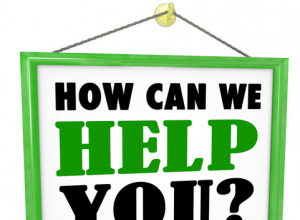It’s a criminal offense to pay a person to donate an organ. That policy fits well with societal norms that restrict commerce in certain areas. For example we don’t allow people to sell themselves into slavery. We certainly don’t want people to be coerced for financial reasons to sell their organs and endanger their lives.
And yet, arguments for paying for organ donation exist. People die all the time for lack of a suitable organ available for transplant. Is it right to interfere with their pursuit of life, health and happiness by restricting how people use their wealth? And of course doctors and hospitals charge for their services in performing transplants, so it’s not as though there isn’t money changing hands.
The issue has come to the fore again recently, with the federal government’s proposal to ban compensation for bone marrow collected in a less invasive manner. This one touches a nerve for me, because a couple years ago I made a decision not to follow through as a bone marrow donor even after I had been told that I had matched with a patient. More on that in a moment.
Compensation for bone marrow donors has long been banned as part of the National Organ Transplant Act (NOTA), which defines bone marrow as an organ. That made sense in a way because extraction of bone marrow is fairly invasive and somewhat risky. But, according to MedPage Today:
Under a method called peripheral blood cell apheresis, donors receive injections to stimulate HSC production. HSCs are collected via an apheresis machine from donors’ central veins before the remaining blood is returned.
Some places, including a California nonprofit called MoreMarrowDonors.org, wanted to award up to $3,000 in scholarships, housing allowances, or gifts to charity for mixed-race and minority bone marrow donors who donated using the apheresis method. Various advocates of such compensation, including parents of children with leukemia and aplastic anemia, filed a preemptive lawsuit, saying that NOTA’s ban on compensation was unconstitutional if it were to be applied to apheresis.
The feds have responded by proposing to change the definition of bone marrow so that the method of collection is irrelevant.
There are good arguments on both sides of this, and I suggest you check out the MedPage story to learn more.
Meanwhile, here’s my story. A few years ago I joined a bone marrow registry and had a cheek swab taken. I did it as part of a community event where a registry was signing people up. The staffers were mainly people whose relatives had benefited from bone marrow transplants.
A couple years later I got a call. I had matched up with a patient who needed a bone marrow transplant. I was told to come in for more testing and then possibly undergo a traditional extraction process or apheresis. My initial inclination was to follow through, but after talking to some physician friends who understood the process better, I ultimately decided not to do it and took myself off the registry. As a human being and a father I felt somewhat guilty about my decision, but also quite certain I was doing the right thing for me.
Here are the questions I pondered: If I didn’t follow through, how likely was the patient to find another match? (There’s no way to know – the registry won’t provide any information about that.) How likely was the patient to benefit from a bone marrow transplant and to what extent? (It’s not a miracle cure – and doesn’t always help at all.) I balanced those issues against the small but real safety risk of being a donor – which could ultimately be costly to my well-being and affect my ability to support my family — and the inconvenience of going through the procedure. Call me selfish if you want – I’d certainly be angry if I were the patient needing a transplant as opposed to the donor – but that’s how I decided.
As I reflected on it, I decided I would be willing to donate for a family member or a friend, but not for a stranger. I should have figured that out before signing up but didn’t.
This still leaves the question of compensation open. In my case it would not have made a difference. But I’m sure it would be decisive for others who are hesitant. Whether they should be allowed to be compensated or not I’m still unsure.
A letter to the editor of the Wall Street Journal suggests that this whole debate is beside the point, and that stem cell transplants from other sources such as umbilical cords are solving the problem for us. Maybe the real focus should be to provide better funding to the NIH to advance approaches that make these moral dilemmas go away.
photo credit: umjanedoan via photopin cc
—–








